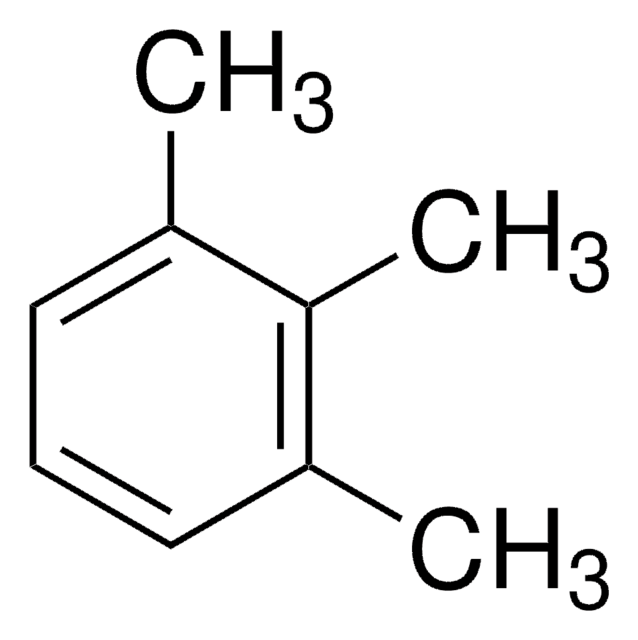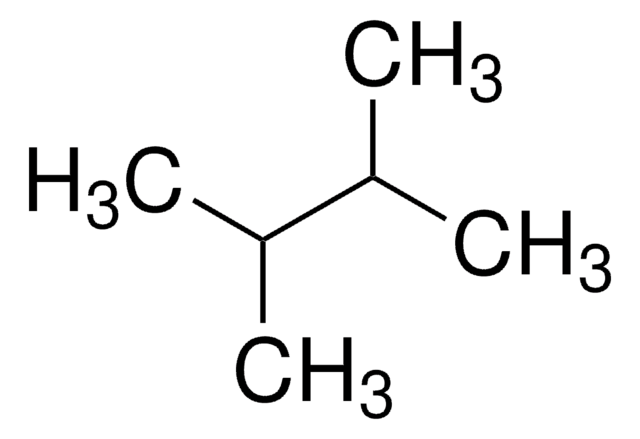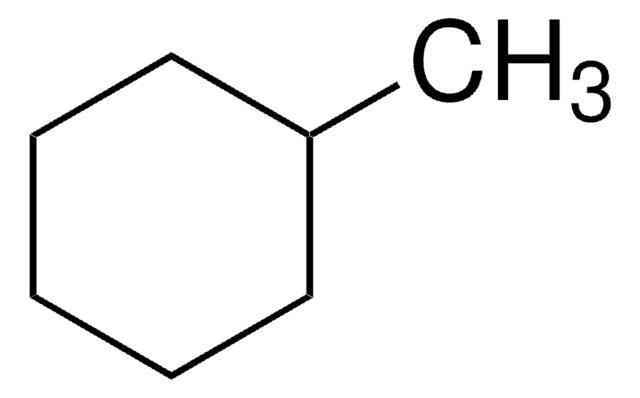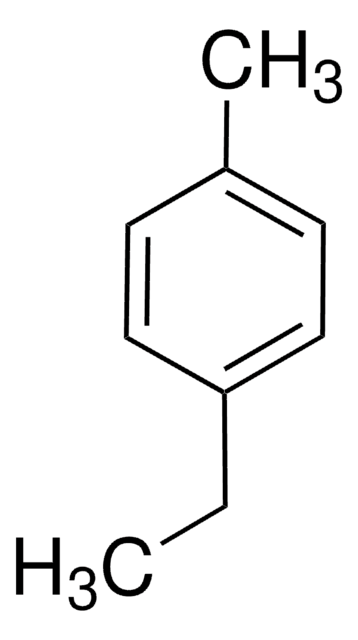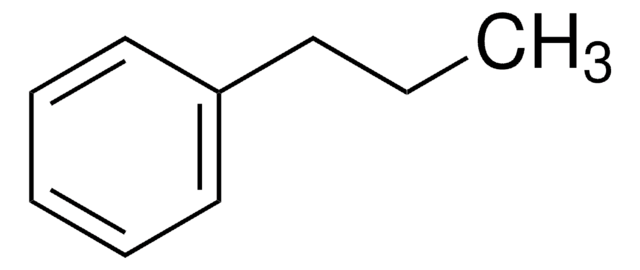63908
Mesitylene
analytical standard
Synonym(s):
1,3,5-Trimethylbenzene
About This Item
Recommended Products
grade
analytical standard
Quality Level
vapor density
4.1 (vs air)
vapor pressure
14 mmHg ( 55 °C)
2.49 mmHg ( 25 °C)
Assay
≥99.8% (GC)
autoignition temp.
1022 °F
shelf life
limited shelf life, expiry date on the label
expl. lim.
0.88-6.1 %, 100 °F
technique(s)
HPLC: suitable
gas chromatography (GC): suitable
refractive index
n20/D 1.499 (lit.)
n20/D 1.499
bp
163-166 °C (lit.)
mp
−45 °C (lit.)
density
0.864 g/mL at 25 °C (lit.)
application(s)
environmental
format
neat
SMILES string
Cc1cc(C)cc(C)c1
InChI
1S/C9H12/c1-7-4-8(2)6-9(3)5-7/h4-6H,1-3H3
InChI key
AUHZEENZYGFFBQ-UHFFFAOYSA-N
Looking for similar products? Visit Product Comparison Guide
General description
Application
Recommended products
Signal Word
Danger
Hazard Statements
Precautionary Statements
Hazard Classifications
Aquatic Chronic 2 - Asp. Tox. 1 - Eye Irrit. 2 - Flam. Liq. 3 - Skin Irrit. 2 - STOT SE 3
Target Organs
Respiratory system
Storage Class Code
3 - Flammable liquids
WGK
WGK 2
Flash Point(F)
122.0 °F
Flash Point(C)
50 °C
Personal Protective Equipment
Choose from one of the most recent versions:
Already Own This Product?
Find documentation for the products that you have recently purchased in the Document Library.
Customers Also Viewed
Protocols
Protocol for GC Analysis of Hydrocarbons in Gasoline on Petrocol® DH
-Xylene; Nonane; Propylbenzene; Mesitylene; 1,2,4-Trimethylbenzene; 1,2,3-Trimethylbenzene; 1,3-Diethylbenzene; 1,4-Dimethyl-2-ethylbenzene; 1,2-Dimethyl-4-ethylbenzene; Durene; 1,2,3,5-Tetramethylbenzene; 1,2,3,5-Tetramethylbenzene; 2-Methylnaphthalene (β)
US EPA Method TO-17: GC Analysis of Volatiles on VOCOL® after Collection/Desorption using Air Toxics Tube
GC Analysis of Hydrocarbons in Gasoline on Petrocol® DH, Isothermal
Our team of scientists has experience in all areas of research including Life Science, Material Science, Chemical Synthesis, Chromatography, Analytical and many others.
Contact Technical Service

